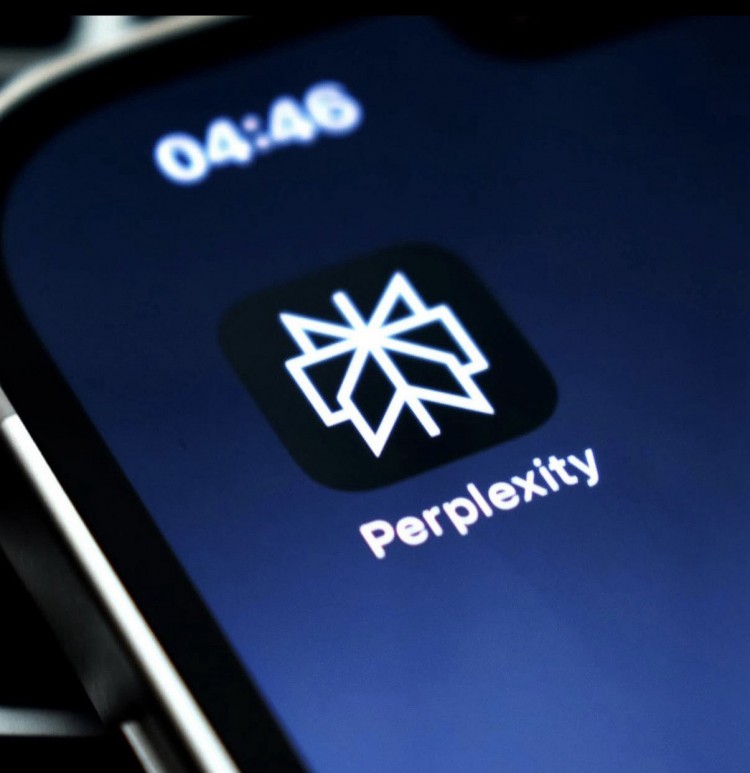Samsung Eyes AI Independence: Perplexity Partnership Could Reshape Mobile Search Landscape

Samsung Electronics is reportedly on the verge of striking a transformative deal with Perplexity AI that could fundamentally alter the smartphone AI assistant landscape. According to Bloomberg sources, the Korean tech giant is preparing to invest significantly in the AI search startup while integrating its technology deeply into Samsung's mobile ecosystem-starting with the Galaxy S26 series slated for early 2026.
The move represents more than just another tech partnership. It signals Samsung's calculated bid for AI independence, potentially breaking free from its heavy reliance on Google's services that has defined Korean Android phones for over a decade.
The partnership reportedly encompasses several ambitious components. Samsung plans to pre-install Perplexity's app and AI assistant on upcoming Galaxy devices, while embedding the startup's search capabilities directly into Samsung's Internet browser. Perhaps most significantly, discussions include integrating Perplexity's technology with Bixby, Samsung's long-struggling voice assistant that has played second fiddle to Google's offerings for years.
Samsung could announce this integration as early as this year, with the Galaxy S26 series-expected to launch in the first half of 2026-serving as the flagship showcase for Perplexity as the default assistant option. The specifics remain fluid, but the trajectory is clear: Samsung wants options beyond Google.
Financially, Samsung is positioned to become one of Perplexity's largest investors in the startup's current funding round. Perplexity is raising $500 million at a $14 billion valuation-a staggering figure that reflects both the AI boom's intensity and the startup's rapid ascent. Just 18 months ago, Perplexity was valued at a modest $520 million. Today, it commands nearly $100 million in annual recurring revenue, cementing its position as a legitimate challenger to Google's search dominance.
This partnership reflects broader Korean anxieties about technological sovereignty. Samsung, despite being the world's largest smartphone manufacturer, has watched helplessly as American AI companies capture the most valuable parts of the mobile experience. Google's Android, Apple's Siri, and now OpenAI's ChatGPT integration with Apple represent foreign control over the software that increasingly defines smartphone value.
For Samsung, diversifying AI partnerships isn't just good business-it's national pride. Korean chaebols like Samsung have historically preferred building in-house capabilities rather than depending on foreign suppliers. Bixby, launched in 2017, was Samsung's attempt at digital assistant independence. But despite years of development and integration across Samsung's ecosystem, Bixby never achieved the natural language processing sophistication that users demanded.
The irony is palpable: just months after Samsung finally conceded to make Google's Gemini the default assistant on Galaxy S25 devices, the company is already plotting its next move toward independence.
Samsung isn't flying blind here. Perplexity's partnership with Motorola, announced in April, provides a compelling preview of what deeper smartphone integration might look like. Motorola made Perplexity the first AI assistant to work seamlessly on foldable external displays-a technical achievement that Samsung, as the foldable market leader, undoubtedly noticed.
The Motorola integration goes beyond simple app installation. Users can ask Perplexity to book restaurant reservations, send emails, and perform complex multi-step tasks-precisely the kind of functionality that transforms AI from novelty to necessity. Motorola sweetened the deal by offering three months of Perplexity Pro free, demonstrating how hardware partnerships can drive AI service adoption.
For Samsung, which sells hundreds of millions of devices annually compared to Motorola's more modest volumes, a similar partnership could catapult Perplexity into mainstream consciousness virtually overnight.
The timing isn't coincidental. Apple has been publicly flirting with Perplexity as well. During Google's ongoing antitrust trial, Apple's services chief Eddy Cue testified that the company is "actively looking at" incorporating AI into Safari search, specifically mentioning Perplexity alongside OpenAI and Anthropic as potential partners.
This creates a fascinating dynamic: Samsung and Apple, fierce competitors in hardware, might both embrace the same AI startup to reduce their dependence on Google. It's a testament to how dramatically the mobile landscape has shifted. Where once differentiation came from cameras and displays, now it's about which AI assistant can best understand and execute user intentions.
Yet significant obstacles remain. Samsung's relationship with Google runs deep-beyond search into core Android services, cloud infrastructure, and advertising revenue sharing that reportedly generates billions annually for Samsung. Completely severing these ties would be enormously complex and potentially costly.
There's also the user experience challenge. Samsung already juggles Google's Gemini and its own Bixby across different use cases. Adding Perplexity to this mix risks creating confusion rather than clarity for users who just want their phones to work intuitively.
Perplexity itself faces scrutiny. Several major publishers, including The New York Times and Forbes, have accused the startup of content scraping without proper attribution-concerns that could complicate Samsung's brand association if they escalate.
Beyond smartphones, this partnership represents Korea's broader struggle to maintain technological relevance in the AI era. While Korean companies excel at hardware manufacturing, the most valuable AI innovations have emerged from Silicon Valley and, increasingly, China.
Samsung's Perplexity gambit suggests Korean tech leaders recognize they can't simply manufacture their way to AI leadership. Strategic partnerships, significant investments, and platform integration may be Korea's path to remaining relevant as AI reshapes global technology hierarchies.
Whether this particular bet pays off remains to be seen. But Samsung's willingness to challenge Google's mobile dominance, even as a key Android partner, signals that the smartphone wars are entering a new phase-one where AI assistants may matter more than processor speeds or camera megapixels.
The Galaxy S26 launch, still months away, will ultimately reveal whether Samsung's AI independence strategy represents genuine innovation or merely another attempt to differentiate in an increasingly commoditized market.



